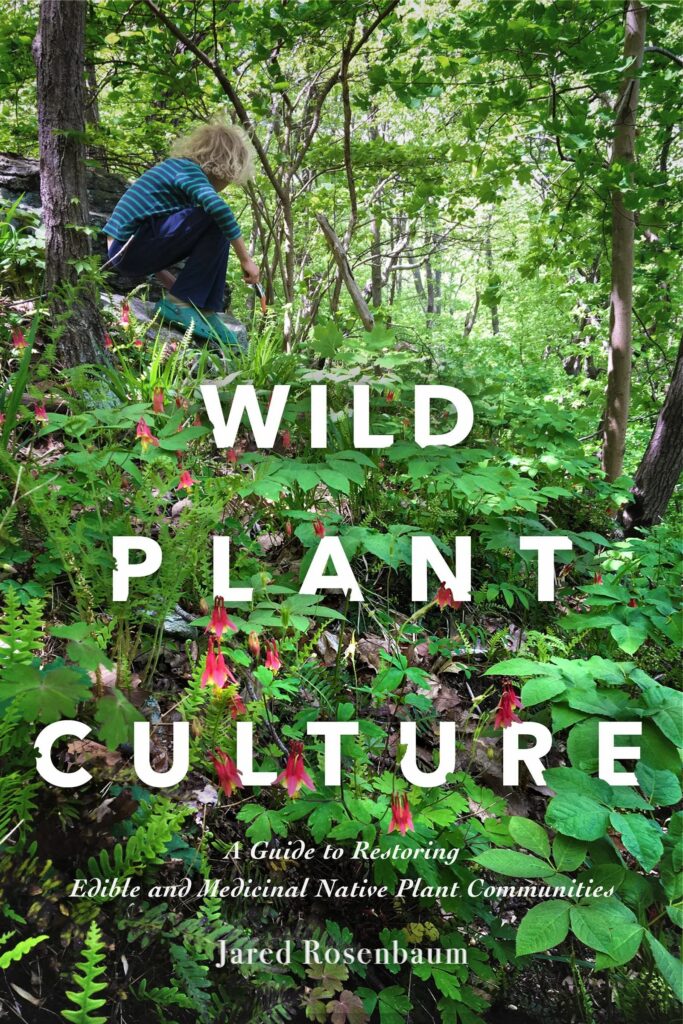
By Jared Rosenbaum
New Society Publishers, 2022
296 pages, paperback, $39.99
“Wild Plant Culture” by Jared Rosenbaum is an in-depth exploration of the reintegration of native plants into our landscapes for both ecological restoration and practical human use. The book offers a comprehensive guide to understanding, cultivating, and utilizing native plants, emphasizing their importance in maintaining biodiversity, supporting wildlife, and providing sustainable food and medicine sources.
Rosenbaum begins by highlighting the significance of native plants in various ecosystems. He explains their evolutionary adaptations and relationships with local fauna, which are crucial for maintaining ecological balance. His introduction sets the stage for appreciating the interconnectedness of plants and their environments.
One of the core themes of the book is ecological restoration. He states that ecological restoration is a way of connecting and healing nature, returning the gifts that we receive from the plants and the living earth. This book serves as a guide detailing methods for restoring native plant communities in degraded landscapes. The first step in the restoration process is understanding the historical context of a given area, including its original plant communities and the processes that have led to their decline. He also makes the argument that rather than changing soil or a site to fit a particular plant we should be matching plants to the habitats that already exist. A chapter titled “Plant Communities” gives detailed descriptions of various habitat types and cultural species that one finds there or would have if the area was still intact.
A significant portion of the book is dedicated to the edible and medicinal uses of native plants. Each plant is even given its own tagline of sorts such as Mad Dog Skullcap, “Small herb big calming,” or Sassafras, “The root beer tree.” Rosenbaum describes a variety of species, their uses, and how to sustainably harvest them, and even shares personal stories, many from times he was doing botanical surveys, and reflections on each.
“Wild Plant Culture” is a valuable resource for anyone interested in native plants, ecological restoration, and sustainable living. It offers a thorough guide to understanding and working with native plant communities, highlighting their importance for biodiversity and human well-being. Rosenbaum’s practical advice, combined with his passion for the subject, makes this book an informative read for gardeners, conservationists, and nature enthusiasts of the Northeast.
– Denise DeSpirito, Of the Spirit Herbals, Lincolnville, Maine
This review was originally published in the fall 2024 issue of The Maine Organic Farmer & Gardener. Browse the archives for free content on organic agriculture and sustainable living practices.
